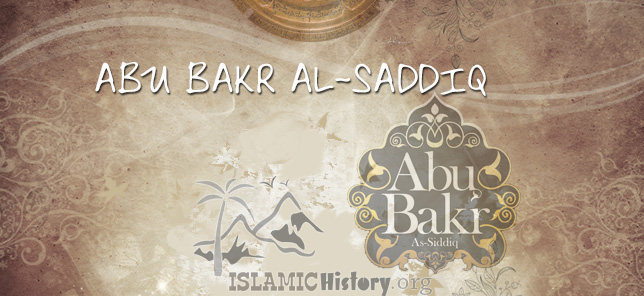The rightly guided Caliphs, May Allah be Pleased with them, followed the steps of Messenger of Allah [saw].
Among many things, they give special attention to the poor and catered for the needy, took interest in social solidarity among the entire society’s people, and exerted their utmost in saving all those in distress or in need. It is no wonder that they did so, as they were nurtured by the Messenger [saw] and learned from his purely divine doctrines, in words and deeds. Therefore, their caliphate rule was a mercy to Muslims, as it gave Muslims access to a way of life which the other nations, even the modern ones, have failed to obtain.
What we see now in the West is just the provision of social insurance to the incapacitated. This type of insurance is only provided to the people against what they pay when they are healthy; they are given back what they have paid before. But the system at the era of the rightly guided caliphs far exceeds this, as the state then provided for all the Islāmic society people specific shares from the Baitul Mal or House of Charity, from the moment one is born until he/she dies. The state even nurtured his sons and relatives after he had passed away. A society with such values and principles would undoubtedly dominate the world. It is taken for granted that the era of the rightly guided caliphs was the best in the post- prophet era, as the nation was ruled by the greatest companions close to the prophet [saw]. The prophet had praised them and asserted that they would be granted Paradise by Allah in the Hereafter. In ruling the nation, the rightly guided caliphs sought the help of the trustworthy companions of the prophet who served as the elite in the fields of thought, politics, administration, economy, and military leadership.
The moment Abu Bakr al-Siddiq [ranhu], May Allah be pleased with him, embraced Islam, he spent all his money for the cause of Islam. He promptly set people free and helped end the hardships of the downtrodden Muslims. When he assumed the caliphate after the death of the Prophet [saw], he followed his steps in terms of catering for the poor, the needy, and those in distress. He even led wars on Redda (apostasy) in defense of the poor’s right ordained by Allah [swt] as a duty on the rich, after those mortaddeen( apostates) stopped to observe this great pillar of Islam, mainly zakat which establishes a society enjoying solidarity between its poor and its rich.
Abu Bakr As-Siddiq RA ᴴᴰ
First: House of Charity.. The Poor’s focus of concern
After Abu Bakr [ranhu], May Allah be pleased with him, assumed the caliphate rule of Muslims, he distributed all that was in the House of Charity to the poor and needy. Ibn Saad in his Islāmic history book Al Tabakat relates that Abu Bakr, May Allah be pleased with him, had a House of Charity at al Saneh area with no guards therein. One day someone asked him” Oh, the caliph of the Messenger [saw], would you nominate someone at the House of Charity to guard it?”
Abu Bakr replied by saying “It has nothing to be worried about “. Then the man asked why, and Abu Bakr said” We handed out everything and there is nothing left” .
When Abu Bakr moved to Al Madina, he transferred the House of Charity to the house where he settled. Funds were sent to him as zakat of the minerals after the emergence of minerals ( salt, tar, gold, and the like) in several areas such as al Kabalia area ( five days away from al Madina), and a lot of funds also reached the House of Charity after the minerals were discovered in Juhaina area. Among the areas where minerals were discovered during the era of Abu Bakr was that which emerged at Bani Sulaim area where the locals of this area brought the zakat of these minerals to him. All this was put in the House of Charity and Abu Bakr divided it among the people one by one, with equality between masters and slaves, males and females, the young and the old alike. Furthermore, he bought camels, horses, and weapons to be allocated for jihad for the cause of Allah. One year he bought Kataef (kinds of thick clothing) which were brought by the Bedouins, and he distributed them among the widowed of the Madina in winter. When Abu Bakr died and was buried, Omar Ibnul Khattab called on the advisors to enter Abu Bakr’s House of Charity. Omar entered along with Abdul Rahman Ibn Awf and Othman Ibn Affan and others entered and opened the House of Charity and found no dinar or dirham. They only found a piece of cloth allocated for funds, opened it, and found in it one dirham; they kept praying that Allah has mercy on Abu Bakr [ranhu].
The second topic: Military forces he formed to save Muslims
The greatness of Abu Bakr is that he is a fruit of the efforts of the prophet [saw]. His greatness lies in the fact that he, May Allah be pleased with him, protected the nascent Islāmic state from collapse. He confronted the apostates with all his effort and repelled any injustice or aggression on the part of those apostates against Islam and Muslims. During the wars of Redda, a man by name of Al Fuja’a came to him, whose real name was Iyas Ibn Abdullah Ibn Abd Yalil Ibn Omaira Ibn Khifaf, and said to Abu Bakr ” I am a Muslim and came to seek jihad against those who became atheists, so I ask you to cater for me and help me, so Abu Bakr catered for him and helped him and gave him a weapon. Instead of going to jihad as he claimed, he stood at the road taking tributes ( taxes) from people either a Muslim or an apostate, and even the beat anyone who refused to give him what he had. With him, there was a man by name of Najba Ibn Abi Al Mitha from a tribe called Bani Ashshareed, whom he sent to launch raids on any Muslim from Sulaim and Amer and Hawazen tribes.
Then Abu Bakr was informed of what Al Fuja’a did, so he sent a message to Tarifa Ibn Hajez, one of Abu Bakr’s military men, saying “This enemy of Allah, Al Fuja’a, came to me claiming that he was a Muslim, and he asked me to help him under the claim that he would fight those who turned back from Islam, so I supplied him with logistics and a weapon. Then I knew later that he turned out to be an enemy of Allah, assaulting the people either Muslims or apostates, taking their money, and killing those who refused to pay. You must go together with the Muslims you have until you kill him or take captive of him and bring him to me”
Tarifa Ibn Hajez set off and launched a decisive battle, after which he was able to take Al Fuja’a as a captive, and sent him to the caliph who killed him.
In his era, the Bahamians turned back from Islam after the death of their king al Monzer Ibn Sawa Al Abdy, except for a village by name of Guatha which held firm to Islam. The only one among all ethnic groups who abandoned Islam, this village was the first to establish Friday prayers, as Ibn Abbas, may Allah be pleased with him, said: the first Friday prayers, after that established in the Prophet’s mosque, was at the mosque of Abdul Kais at Guatha village, Bahrain. The Mortaddeen (apostates) then imposed a blockade on this village and tightened the grip around its people so much so that they denied them food, making them seriously starve, but then Allah saved them and dispelled their grief. Among those under the siege was a righteous man by name of Abdullah Ibn Hazf from Bani Kilab Ibn Kilab, who gave a full account of the situation through a poem he sent to Abu Bakr Asseddeek, may Allah be pleased with him, describing how to distress he and his fellow villagers were in the blockade imposed on them. In his poem he asserted, however, that he and his fellow villagers would hold fast to faith in Allah, being sure of victory from Allah to those who leave their affairs to Him. Once Abu Bakr, May Allah be pleased with him, received the message, he abruptly sent forces to help and rescue the Muslims. He sent an army under the commandership of Al Alaa Ibn Al Hadramy who was able to triumph over the apostates and save the Muslims from the torment which they came under.
The third topic: Marks of Solidarity At his Era, May Allah be pleased with him.
Stories abound which prove the spread of the phenomenon of solidarity among the society individuals. Al Manawi states in his book Addur Al Mandhood (the Stuffed Diamonds), that drought befell the people at the era of Caliph Abu Bakr Asseddeek, may Allah be pleased with him. When conditions got worse, they came to Abu Bakr Asseddeek, may Allah be pleased with him, and said to him, “Oh, Caliph of the Messenger of Allah, [saw], the sky no longer brings down rain and the land no longer brings up plants and the people fear a disaster, what are you going to do? Hearing this, he said to them “Go now and be patient, and I hope that Allah will have brought His subsistence by the evening. When they went down the roads, they saw one thousand camels laden with corn, oil, and flour, and stood near the house of Othman, may Allah be pleased with him, who put them in his house. When the merchants heard of the convoy, they came along to him to buy goods. “What do you see”? he asked them. They replied by saying that “you know what we want”. Then he asked them “How much profit will you give me?
– two- dirham profit.
-I was offered more than that.
-Four.
-I was offered more.
-Then five.
-I was offered more.
-We are the only merchants in the town, so who offered you more than we did?
– Allah offered me ten dirham for every single dirham; do you have more than that?
-No.
-Then you bear witness that I give all that camels along with the goods to be a charity for the cause of Allah for the sake of the poor and the needy.
Also King of Bahrain al Monzer Ibn Sawa al Abdy, who embraced Islam before the death of the prophet [saw], donated one-third of his money in solidarity with the needy. Amr Ibn El- As, may Allah be pleased with him, was present when he was at his death-bed and said to him – Oh, Amr, did the Prophet [saw], allow the patient to dispose of any of his will?
– Yes, one-third”.
-What can I do with it?
-You can give it as charity to your relatives and, if you want, you can hand it out to the needy, or you can divide it as ongoing charity after death.
-I would like to hand it out as charity( ).
Actually he did what he was told, and he died at the era of Caliph Abu Bakr al-Siddiq [ranhu] may Allah be pleased with him.
source
